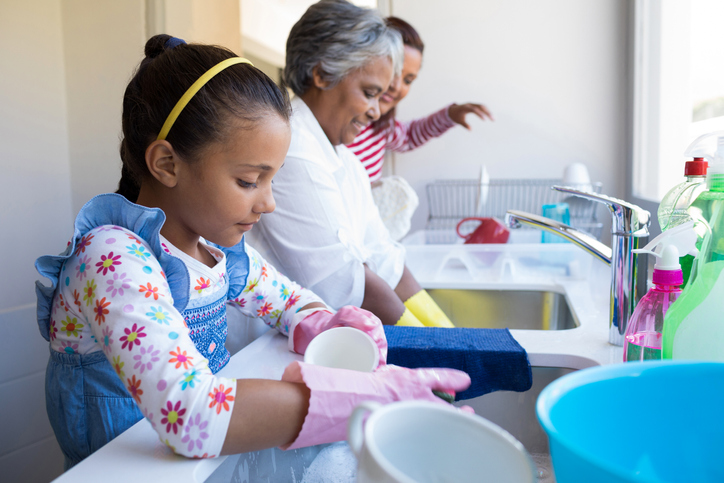Drinking, Substance Use, Mental Health Issues up During the Pandemic

Sep. 3, 2020
There is no doubt that the pandemic has increased stress for most South Carolinians. The headlines dominating the news cycles paint challenging times for everyone. This is leading to an increase in behavioral health issues.
A recent study by the Centers for Disease Control and Prevention* (CDC) found the number of Americans reporting adverse mental health or behavioral changes (like drinking or drug use) is on a steep rise. About 13 percent of Americans said they were drinking or using drugs more because of the pandemic and almost 11 percent reported they seriously considered suicide in the last month.
About 40 percent of Americans said they were suffering from one or more symptoms of serious mental health problems.
We have seen increases here in South Carolina for requests for help, says Dr. April Richardson, a medical director with BlueCross BlueShield of South Carolina and a psychiatrist in Greenville.
“It's important to look at the mental health consequences of what's going on right now with the pandemic and other societal stressors we are experiencing,” she says. “It is important to look at how it's impacting people and their ability to handle the stress and the complexities of their lives.”
There has also been a rise in the number of virtual visits for behavioral health, as well as the number of doctors or therapists offering a virtual option. This year, BlueCross has seen a 3,000 percent increase in the number of virtual visits, with more than 1,300 providers coming online, Richardson says.
“It shows that people are being affected by what's going on. The good news is that they're still able to seek care,” she says.
At Risk
One recent development is the number of people who have had COVID-19 and are now suffering from symptoms similar to post-traumatic stress disorder or other mental health conditions.
“Some of the folks that had long hospital stays are really worried about getting it again.
Are they safe? Are they going to get sick again?” she says.
This has been studied in essential or frontline workers who are exposed to the virus at work. According to the CDC study, more than 21 percent of essential workers had considered suicide in the last month. About 25 percent of the workers said they were using substances more now than they had before the pandemic.
“The continuous stress of having to deal with such a sick population of people and seeing people dying regularly from something that we don't know a lot about and don't have many options for treatment — that is really hard to experience over and over,” she says.
This is where mental health experts like Richardson come in to find ways to support those who are working on the frontline and are constantly exposed to risk to bring down stress over time.
All this has been difficult for those struggling with substance use disorder as well, with the number of relapses on the rise. Before the pandemic, the number of opioid-related overdoses was decreasing.
“We've seen that trend moving in the other direction the last few months since the pandemic started,” she says.
There has also been an increased acceptance of drinking during the pandemic on social media.
“It was an acceptable way to cope with it, according to social media,” Richardson says.
How to Know if You Need Help for Your Drinking
Not sure if you or a loved one has a drinking or drug-use problem? Mental health experts use the CAGE Questionnaire to determine when someone needs help. Ask these questions:
- Have you ever felt you should cut down on your drinking or drug use?
- Have people annoyed you by criticizing your drinking or drug use?
- Have you ever felt bad or guilty about your drinking or drug use?
- Have you ever had a drink or used drugs first thing in the morning to steady your nerves or to get rid of a hangover (eye-opener)?
You should seek help for yourself or your loved one if you answered yes to one of these questions.
You can find resources for alcohol or substance use by calling the number on the back of your health insurance ID card or resources on the Department of Alcohol and Other Drug Abuse Services website.
How to Cope?
What is the best way to cope? When Richardson talks with her patients about their drinking, substance use or other ways they are dealing with stressors, she likes to talk about other, helpful coping skills, like relaxation techniques or distraction techniques.
For example, a nightly glass of wine might be a way to relax after a trying day. She asks her patients to think about other things they find relaxing. Turn to those instead, she tells them. Perhaps it is meditation or deep breathing, going for a walk outside or exercising.
Search for phone or tablet applications for relaxation techniques. Many are free or low-cost. Distraction techniques like adult coloring books or puzzles are also popular.
Seek help when you feel like something is affecting your functioning. Are you or your loved one able to function at home or work? A few things to look out for:
- Prolonged sadness
- Lack of enjoyment from things that normally bring joy
- Feelings of hopelessness
- Thoughts of suicide
“People can feel down because of something that's going on in the world or something that they're exposed to that is stressful. That can be short-lived or last a couple days, but if people are having prolonged sadness or when they feel like they are not able to function like they normally would, that's when they would need additional help,” Richardson says.
BlueCross members who feel they need help can call the number on the back of their member ID card. Trained staff who answer those calls can advise people of what services and options there are.
For non-members, there are a lot of resources locally like the National Alliance on Mental Illness (NAMI) and the Department of Alcohol and Other Drug Abuse Services. You can find a list of behavioral health-related community meetings through NAMI. A lot of these meetings are being held virtually right now.
For family members who may be concerned about someone struggling with alcohol or drug use, Richardson recommends starting a conversation in a nonjudgmental way. Try not to be too directive or accusatory.
Family members can also call the number on their member ID card for help with loved ones.
Are You Thinking About Suicide?
It can be tough to have the conversation, but asking the direct question is the best way to start a conversation about suicide. Typically, people will talk about suicide before they act on it, Richardson says.
The study from the CDC found that more people were having suicidal thoughts in response to the pandemic.
“Take it seriously if your loved one expresses thoughts of suicide. Seek care immediately,” she says.
More resources on suicide prevention can be found on the American Foundation for Suicide Prevention’s website. Talk with your doctor if you believe that you are depressed or have had suicidal thoughts.
Looking Ahead
Richardson noticed a change in her patients as people are improving and handling things better. She noticed this change as more things returned to normal.
Although some things have improved as the pandemic wears on, it is unclear whether more people will continue to suffer from mental health issues. It depends on what happens with the pandemic and whether there are more lockdowns or layoffs, she says.
“The more restrictions and less movement from your home environment helps with the spread of COVID-19, but it can be really socially isolating for people, especially those who have mental health or substance abuse history,” Richardson says. “It's kind of weighing the hard balance between what we need to do to control the spread of COVID-19, and then also how that affects the mental health of those who are more predisposed to getting affected by social isolation and being limited to where they can go or what they can do.”
*The Centers for Disease Control and Prevention is an independent organization that provides health information you may find helpful.
This article contains links to third party sites. Those organizations are solely responsible for the contents and privacy policies of those sites.
Related Reading:
 75 Percent of Americans with Behavioral Health Conditions are Continuing Therapy Services During the Ongoing COVID-19 Pandemic
75 Percent of Americans with Behavioral Health Conditions are Continuing Therapy Services During the Ongoing COVID-19 Pandemic
New survey data from the Blue Cross Blue Shield Association (BCBSA) shows that 75 percent of Americans with behavioral health conditions are continuing therapy services during the COVID-19 pandemic because of the prevalence of telehealth and other digital health services.
Read more 7 Ways to Stay Healthy During Self-Isolation
7 Ways to Stay Healthy During Self-Isolation
These days you may be struggling with work/life balance more than usual as you stay at home with family and continue to work. A BlueCross health coach shares some tips to maintain your health during these uncertain times.
Read More BlueCross expands benefits for virtual visits
BlueCross expands benefits for virtual visits
BlueCross is taking steps to increase access to care in response to the Coronavirus. Telehealth visits provide convenience for people to access care using a smartphone, computer or tablet device.
Read MoreNeed to de-stress? Follow this one minute guided meditation.




















